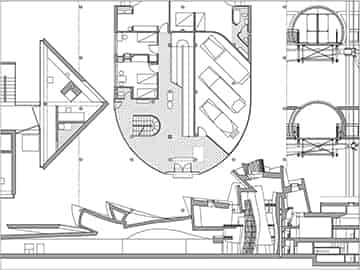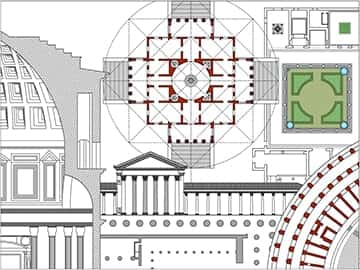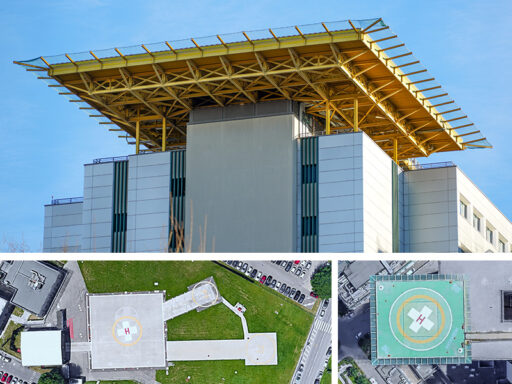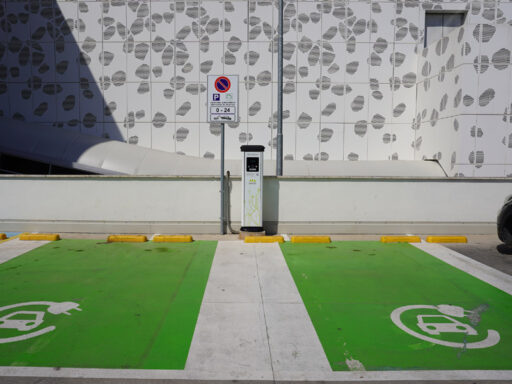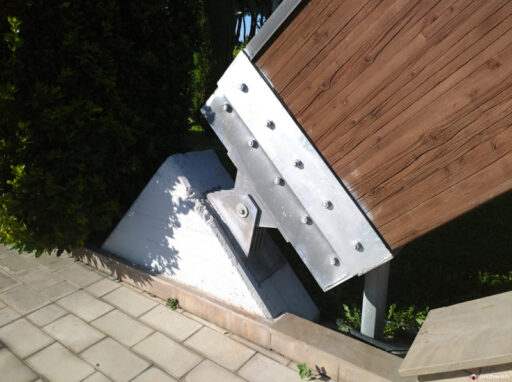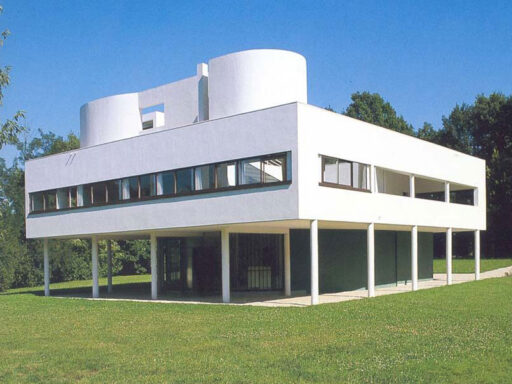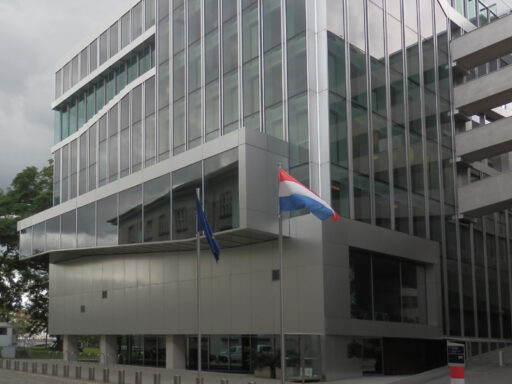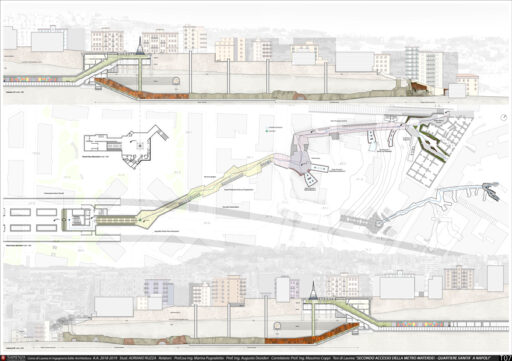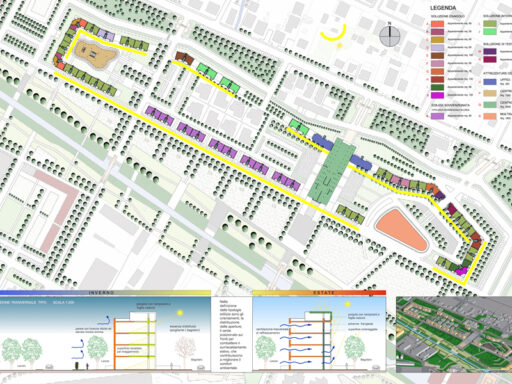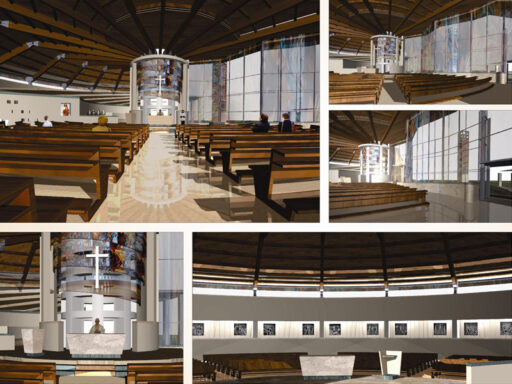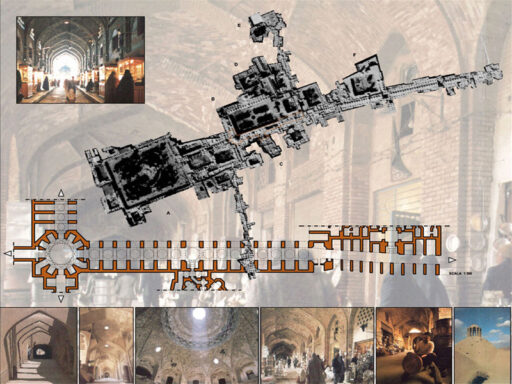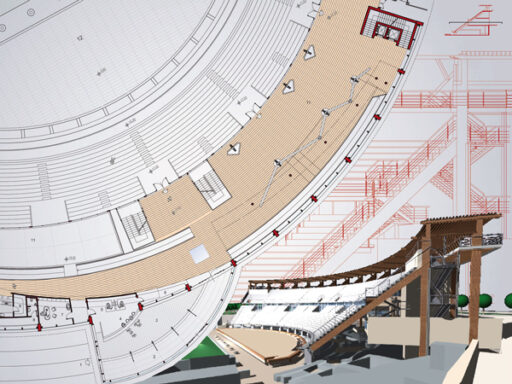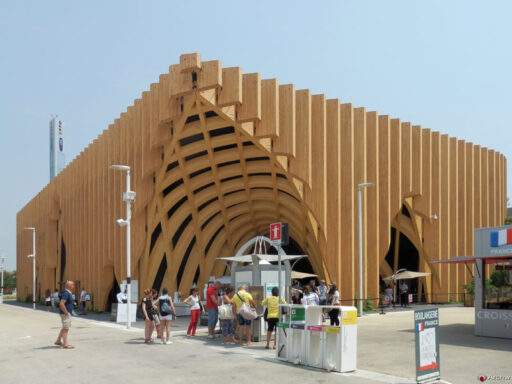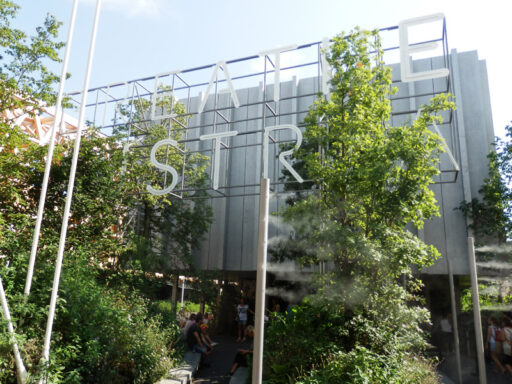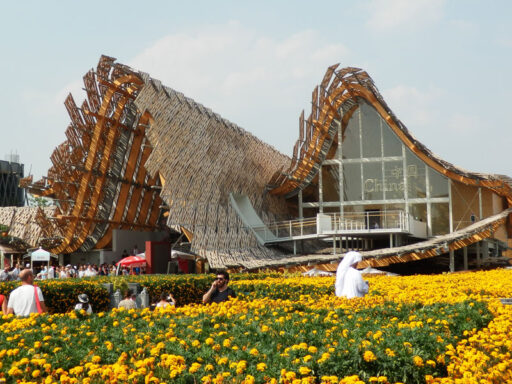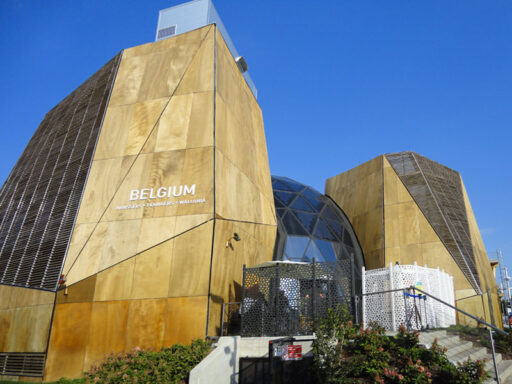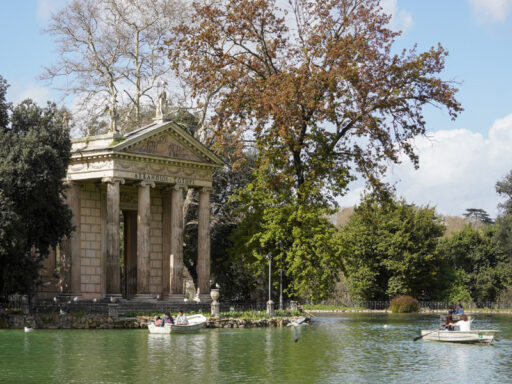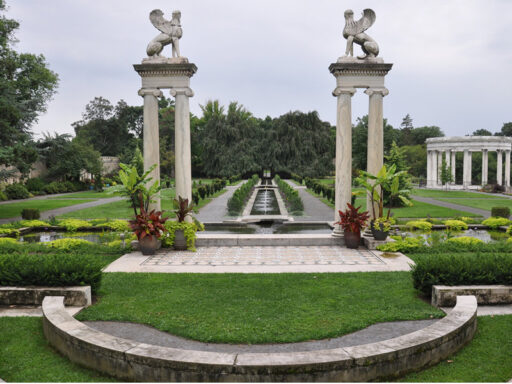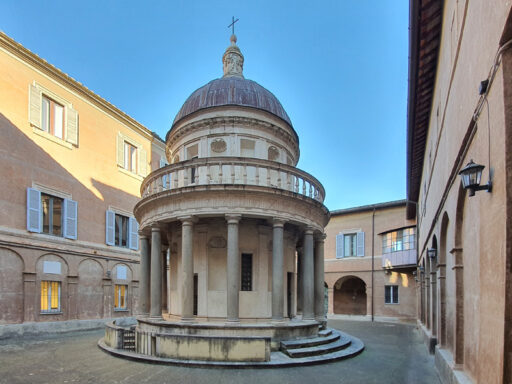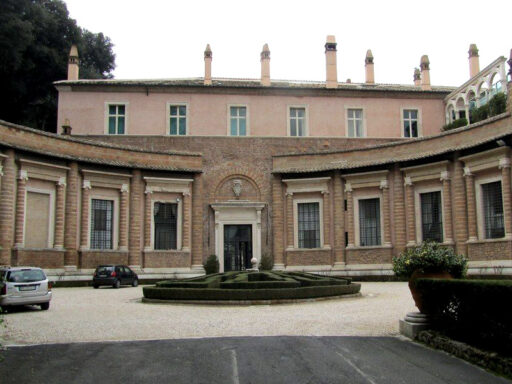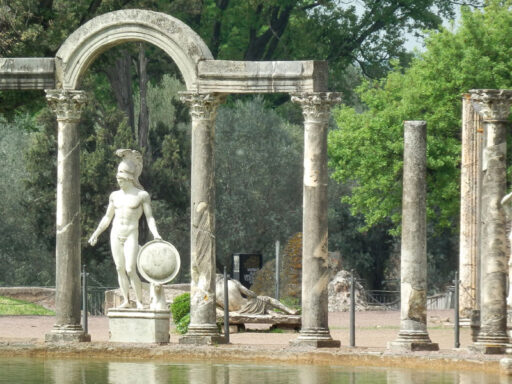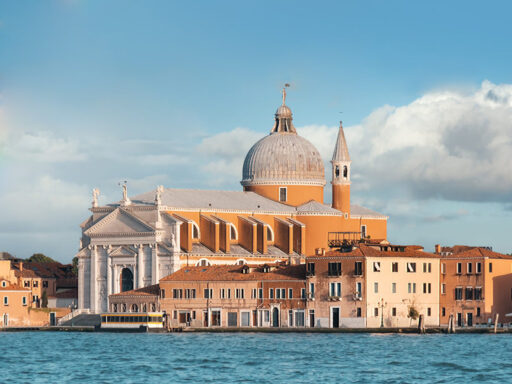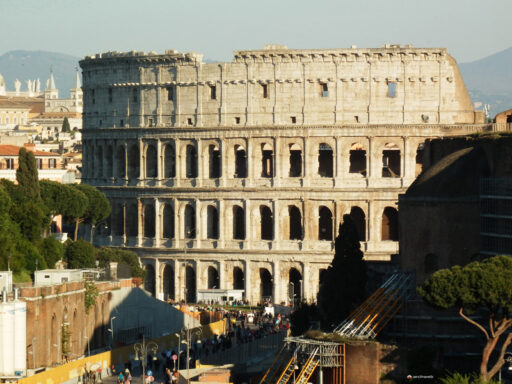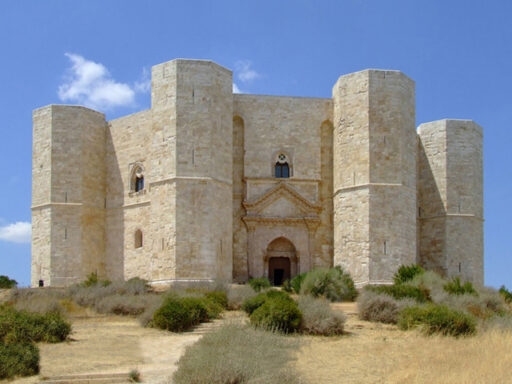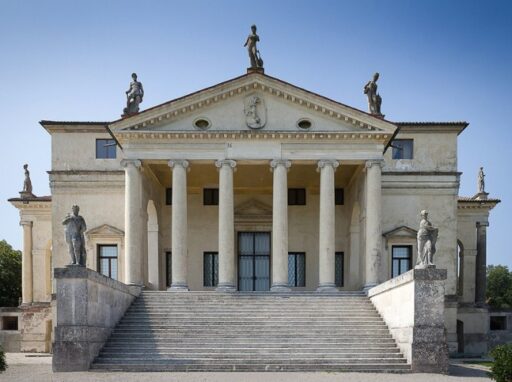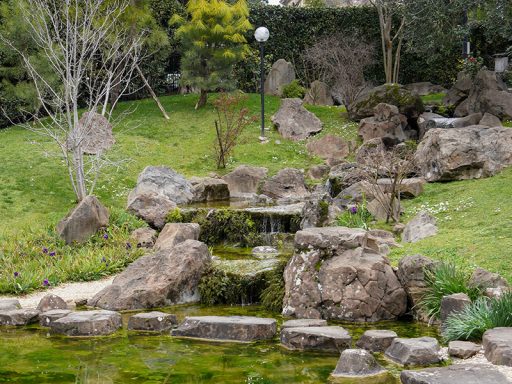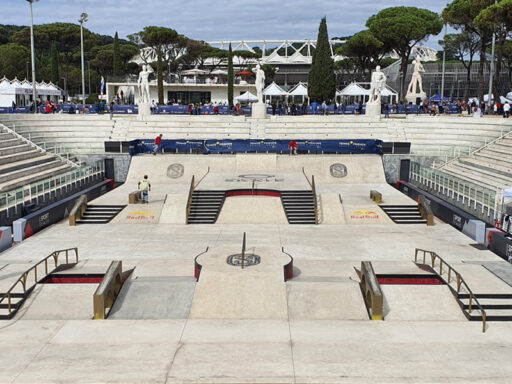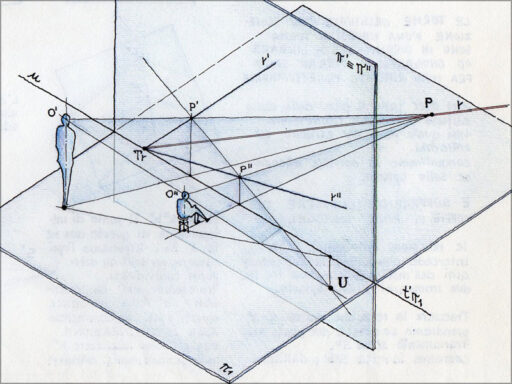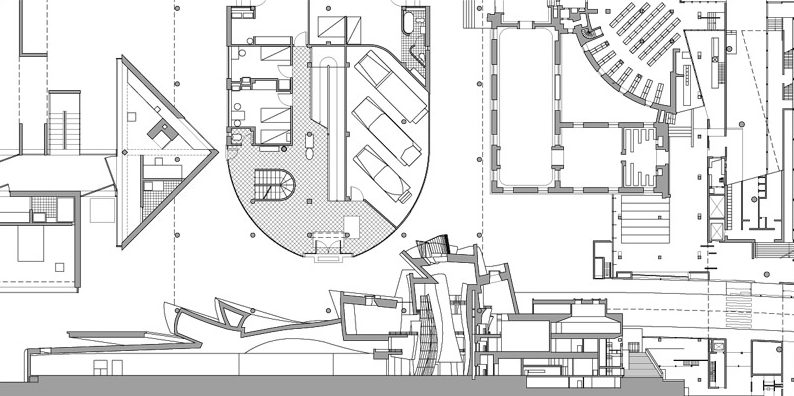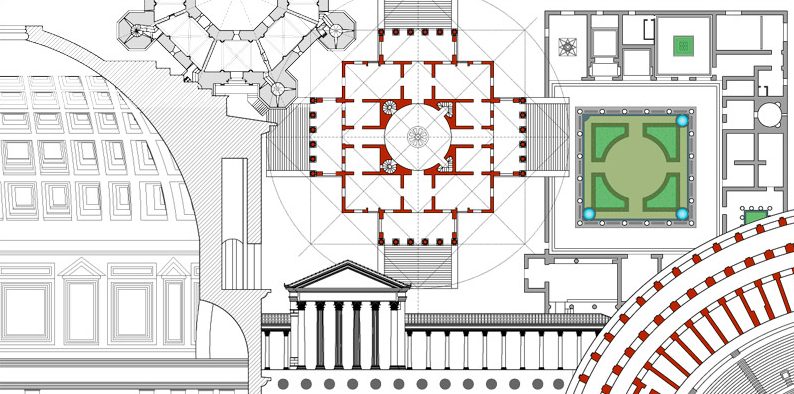The European Landscape Convention
Land landscapes - Inland and marine waters
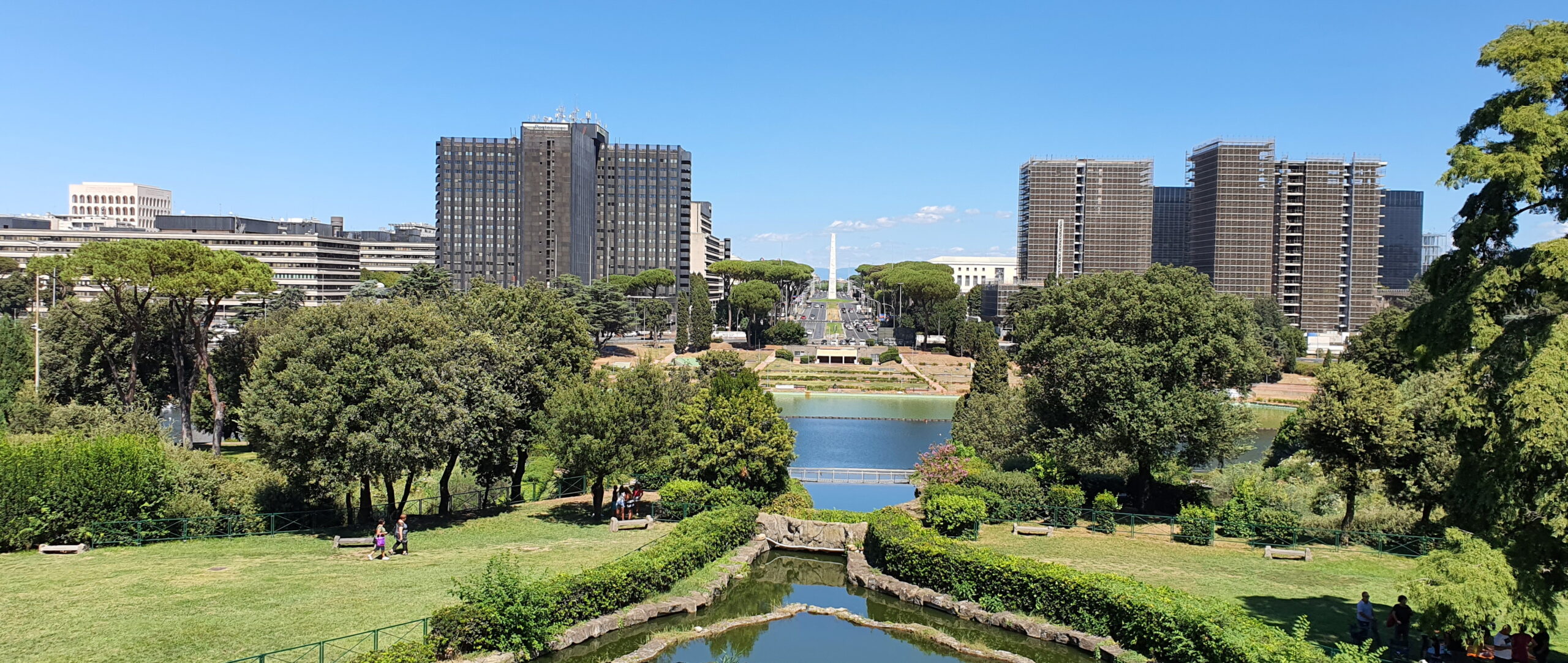
The European Landscape Convention is a document adopted by the Committee of Ministers of Culture and the Environment of European Council on July 19, 2000.The procedures for the preparation and definition of the Convention were handled by Italy which hosted the opening ceremony for signing on 20 October 2000, in the prestigious setting of the Salone dei Cinquecento in Palazzo Vecchio in Florence.
The Convention was signed by twenty-seven states of the European Community and ratified by ten states.
It applies to the entire territory of the signatory states (article 2) and has the objective of promoting the adoption of landscape protection, management and planning policies among public authorities and of organizing European cooperation in sectoral policies.
The Convention is not immediately binding, but is open for signature by other European states. With ratification, the signatory states undertake to achieve the objectives illustrated in articles 5 and 6.
It defines the Landscape as a specific part of the territory, as it is perceived by the populations, whose character derives from the action of natural and / or human factors and their interrelationships (article 1, letter a);
“… includes terrestrial landscapes, inland and marine waters. It concerns both landscapes that can be considered exceptional, both landscapes of everyday life and degraded landscapes.” (article 2).
List of Signatory Countries
Opening of Signatures: Florence 2000
Current Status Signatories: 27 Countries
Current Status Ratifications: 10 Countries
- Armenia, signature: 14/05/2003
- Azerbaijan, signature: 22/10/2003
- Belgio, signature: 20/10/2000
- Bulgaria, signature: 20/10/2000
- Croazia, signature: 20/10/2000, ratification: 15/01/2003
- Repubblica Ceca, signature: 28/11/2002
- Danimarca, signature: 20/10/2002, ratification: 20/03/2003
- Finlandia, signature: 20/10/2003
- Francia, signature: 20/10/2003
- Grecia, signature: 13/12/2000
- Irlanda, signature: 22/03/2002, ratification: 22/03/2002
- Italia, signature: 20/10/2000
- Lituania, signature: 20/10/2000, ratification: 13/11/2002
- Lussemburgo, signature: 20/10/2000
- Malta, signature: 20/10/2000
- Moldova, signature: 20/10/2000, ratification: 14/03/2002
- Norvegia, signature: 20/10/2000, ratification: 23/10/2001
- Polonia, signature: 21/12/2001
- Portogallo, signature: 20/10/2000
- Romania, signature: 20/10/2000, ratification: 07/11/2002
- San Marino, signature: 20/10/2000
- Slovenia, signature: 07/03/2001, ratification: 25/09/2003
- Spagna, signature: 20/10/2000
- Svezia, signature: 22/02/2001
- Svizzera, signature: 20/10/2000
- Repubblica di Macedonia, signature: 15/01/2003, ratification: 18/11/2003
- Turchia, signature: 20/10/2000, ratification: 13/10/2003
European Landscape Convention
Florence 20 October 2000
Translation of the official text in English and French prepared by the Congress of Local and Regional Authorities of the Council of Europe in collaboration with the Ministry for Cultural Heritage and Activities, Central Office for Environmental and Landscape Heritage, on the occasion of the Ministerial Opening Conference to the signing of the European Landscape Convention.
The translation of the text was edited by Manuel R. Guido and Daniela Sandroni of the Central Office for Environmental and Landscape Heritage.
Preamble
The member States of the Council of Europe, signatories to this Convention,
Considering that the aim of the Council of Europe is to achieve a closer union between its members, to safeguard and promote the ideals and principles which are their common heritage, and that this aim is pursued in particular through the conclusion of agreements in the economic and social field;
Desiring to achieve sustainable development based on a balanced relationship between social needs, economic activity and the environment;
Noting that the landscape performs important functions of general interest, on a cultural, ecological, environmental and social level and constitutes a resource favorable to economic activity, and that, if properly safeguarded, managed and planned, it can contribute to the creation of jobs work;
Aware of the fact that the landscape cooperates in the elaboration of local cultures and represents a fundamental component of the cultural and natural heritage of Europe, thus contributing to the well-being and satisfaction of human beings and to the consolidation of European identity;
Recognizing that the landscape is in every place an important element of the quality of life of populations: in urban areas and in the countryside, in degraded territories, as well as in those of great quality, in areas considered exceptional, as in those of daily life;
Noting that the evolution of agricultural, forestry, industrial and mining planning production techniques and of practices in land-use planning, town planning, transport, networks, tourism and leisure and, more generally, global economic changes continue, in many cases, to accelerate the transformations of landscapes;
Wishing to fulfill the wishes of the people to enjoy a quality landscape and to play an active role in its transformation;Convinced that the landscape represents a key element of individual and social well-being, and that its protection, management and planning entail rights and responsibilities for each individual.
Bearing in mind the legal texts existing at international level in the fields of protection and management of the natural and cultural heritage, territorial planning, local self-government and cross-border cooperation and in particular the Convention relating to the conservation of wildlife and the natural environment, Europe (Bern, 19 September 1979), the Convention for the Protection of the Architectural Heritage of Europe (Granada, 3 October 1985), the European Convention for the Protection of the Archaeological Heritage (revised) (Valletta, 16 January 1992), the European Framework Convention on the Transfrontier Cooperation of Territorial Communities or Authorities (Madrid, 21 May 1980) and its additional protocols, the European Charter of Local Self-Government (Strasbourg, 15 October 1985), the Convention on Biodiversity (Rio, 5 June 1992 ), the Convention on the Protection of the World Cultural and Natural Heritage (Paris, 16 November 1972), and C the invention relating to access to information, public participation in decision-making and access to justice in environmental matters (Aarhus, 25 June 1998).
Recognizing that the quality and diversity of European landscapes constitute a common resource for the protection, management and planning of which we need to cooperate;
Wishing to establish a new instrument dedicated exclusively to the safeguarding, management and planning of all European landscapes;
Have agreed as follows:
CHAPTER I. GENERAL PROVISIONS
Article 1. Definitions
For the purposes of this Convention:
- “Landscape” designates a certain part of the territory, as perceived by the populations, whose character derives from the action of natural and / or human factors and their interrelations;
- “Landscape policy” means the formulation, by the competent public authorities, of the general principles, strategies and guidelines that allow the adoption of specific measures aimed at safeguarding, managing and planning the landscape;
- “Landscape quality objective “means the formulation by the competent public authorities, for a given landscape, of the aspirations of the populations with regard to the landscape characteristics of their living environment;
- “Safeguarding of landscapes” indicates the actions of conservation and maintenance of the significant or characteristic aspects of a landscape, justified by its heritage value deriving from its natural configuration and / or the type of human intervention;
- “Landscape management “indicates actions aimed, from a sustainable development perspective, at guaranteeing landscape management in order to guide and harmonize its transformations caused by social, economic and environmental development processes;
- “Landscape planning” indicates strongly forward-looking actions, aimed at the enhancement, restoration or creation of landscapes.
Article 2. Scope
Subject to the provisions of Article 15, this Convention applies to the entire territory of the Parties and covers natural, rural, urban and peri-urban areas. It includes terrestrial landscapes, inland and marine waters. It concerns both landscapes that can be considered exceptional, both landscapes of everyday life and degraded landscapes.
Article 3. Objectives
The purpose of this Convention is to promote the conservation, management and planning of landscapes and to organize European cooperation in this field.
CHAPTER II. NATIONAL MEASURES
Article 4. Division of responsibilities
Each Party shall apply this Convention and in particular its articles 5 and 6, according to the division of powers specific to its legal system, in accordance with its constitutional principles and its administrative organization, in compliance with the principle of subsidiarity, taking into account the European Charter of local autonomy. Without derogating from the provisions of this Convention, each Party shall apply this Convention in accordance with its own policies.
Article 5. General measures
Each Party undertakes to:
- legally recognize the landscape as an essential component of the life context of populations, an expression of the diversity of their common cultural and natural heritage and the foundation of their identity;
- establish and implement landscape policies aimed at the protection, management and planning of landscapes through the adoption of the specific measures referred to in the following article 6;
- initiate procedures for the participation of the public, local and regional authorities and other subjects involved in the definition and implementation of the landscape policies mentioned in paragraph b above;
- integrate the landscape into territorial, urban planning and cultural, environmental, agricultural, social and economic policies, as well as other policies that may have a direct or indirect impact on the landscape.
Article 6. Specific measures
- Awareness raisingEach party undertakes to increase the awareness of civil society, private organizations and public authorities on the value of landscapes, their role and their transformation.
- Training and education
Each Party undertakes to promote:- the training of specialists in the field of knowledge and intervention on landscapes;
- multidisciplinary training programs on landscape policy, conservation, management and planning for professionals from the public and private sectors and for interested trade associations;
- of school and university courses that deal, within the respective disciplines, with the values connected with the landscape and with issues concerning its protection, management and planning.
- Identification and evaluation
- By mobilizing stakeholders in accordance with Article 5.c, and in order to gain a better understanding of their landscapes, each Party undertakes to:
- i identify their own landscapes, on the whole of their territory;
- analyze their characteristics, as well as the dynamics and pressures that modify them;
- follow its transformations;
- evaluate the landscapes identified, taking into account the specific values attributed to them by the subjects and populations concerned.
- The identification and evaluation work will be guided by the exchanges of experiences and methodologies organized between the Parties, on a European scale, in application of Article 8 of this Convention.
Each party undertakes to establish landscape quality objectives regarding the landscapes identified and assessed, after public consultation, in accordance with article 5.c. - By mobilizing stakeholders in accordance with Article 5.c, and in order to gain a better understanding of their landscapes, each Party undertakes to:
- ApplicationTo implement landscape policies, each Party undertakes to activate intervention tools aimed at safeguarding, managing and / or planning landscapes.
CHAPTER III. EUROPEAN COOPERATION
Article 7. International policies and programs
The Parties undertake to cooperate to take account of the landscape dimension in their international policies and programs and to recommend, where appropriate, that landscape considerations are included.
Article 8. Mutual assistance and exchange of information
The Parties undertake to cooperate to enhance the effectiveness of the measures taken pursuant to the articles of this Convention, and in particular to:
- provide mutual assistance, from a technical and scientific point of view, by collecting and exchanging experiences and research work in the field of landscape;
- encourage exchanges of landscape specialists, especially for training and information;
- exchange information on all matters dealt with in the provisions of this Convention.
Article 9. Transboundary landscapes
The Parties undertake to encourage cross-border cooperation at local and regional level, resorting, if necessary, to the development and implementation of common landscape enhancement programs.
Article 10. Monitoring of the application of the Convention
- The competent committees of experts already established pursuant to Article 17 of the Statute of the Council of Europe, are charged by the Committee of Ministers of the Council of Europe with monitoring the application of the Convention.
- After each meeting of the Committees of Experts, the Secretary General of the Council of Europe sends a report on the work and functioning of the Convention to the Committee of Ministers.
- The Committees of Experts propose to the Committee of Ministers the criteria for the award and regulation of the Landscape Award of the Council of Europe.
Article 11. Landscape Award of the Council of Europe
- The Landscape Prize of the Council of Europe can be awarded to local and regional authorities and their consortia which, in the context of the landscape policy of a State Party to this Convention, have implemented a policy or taken measures aimed at safeguarding, the management and / or sustainable planning of their landscapes which demonstrate lasting effectiveness and can thus serve as a model for other European territorial communities.
This recognition can also be awarded to non-governmental organizations that have demonstrated that they provide a particularly significant contribution to landscape protection, management or planning. - Nominations for the award of the Council of Europe Landscape Award will be sent to the Committees of Experts referred to in Article 10 by the Parties. Cross-border local and regional authorities can be candidates, as well as groupings of local or regional authorities, provided they jointly manage the landscape in question.
- On the proposal of the Committees of Experts referred to in Article 10, the Committee of Ministers defines and publishes the criteria for the award of the Landscape Award of the Council of Europe, adopts the regulations and awards the award.
- The award of the Landscape Prize of the Council of Europe encourages those who receive it to ensure that the landscapes concerned are safeguarded, managed and / or planned in a sustainable way.
CHAPTER IV. FINAL CLAUSES
Article 12. Relations with other legal instruments
The provisions of this Convention do not preclude the application of stricter provisions relating to the preservation, management or planning of landscapes contained in other binding national or international instruments which are or will be in force.
Article 13. Signature, ratification, entry into force
- This Convention is open for signature by the member States of the Council of Europe. It will be subject to ratification, acceptance or approval. The instruments of ratification, acceptance or approval will be deposited with the Secretary General of the Council of Europe;
- This Convention shall enter into force on the first day of the month following the expiration of a period of three months from the date on which ten member States of the Council of Europe have expressed their consent to be bound by the Convention in accordance with the provisions of the preceding paragraph;
- For each signatory State which subsequently expresses its consent to be bound by the Convention, it will enter into force on the first day of the month following the expiration of a period of three months from the date of deposit of the instrument of ratification, acceptance or approval.
Article 14. Membership
- From the moment of entry into force of this Convention, the Committee of Ministers of the Council of Europe may invite the European Community and any European State not a member of the Council of Europe to accede to this Convention, with a decision taken by the majority provided for in Article 20.d of the Statute of the Council of Europe, and by the unanimity of the Contracting States having the right to sit on the Committee of Ministers;
For each acceding State or for the European Community in case of accession, this Convention will enter into force on the first day of the month following the expiration of a period of three months from the date of deposit of the instrument of accession with the Secretary General of the Council of Europe.
Article 15. Territorial application
- Each State or the European Community may, at the time of signature or upon deposit of its instrument of ratification, acceptance, approval or accession, designate the territory or territories in which this Convention will apply;
- Any Party may, at any later time, by a declaration addressed to the Secretary General of the Council of Europe, extend the application of this Convention to any other territory specified in the declaration. The Convention will enter into force with respect to that territory on the first day of the month following the expiration of a period of three months from the date on which the declaration was received by the Secretary General;
- Any declaration made under the two preceding paragraphs may be withdrawn in respect of any territory specified in such declaration, with notification sent to the Secretary General. The withdrawal will take effect on the first day of the month following the expiration of a period of three months from the date of receipt of the notification by the Secretary General.
Article 16. Denunciation
- Any Party may, at any time, denounce this Convention by means of a notification addressed to the Secretary General of the Council of Europe;
- Such denunciation will take effect on the first day of the month following the expiration of a period of three months from the date on which the notification was received by the Secretary General.
Article 17. Amendments
- Any Party or the Committees of Experts indicated in Article 10 may propose amendments to this Convention.
- Any proposed amendment is notified in writing to the Secretary General of the Council of Europe, who in turn transmits it to the member States of the Council of Europe, to the other Contracting Parties and to any non-member European State which has been invited to join the this Convention pursuant to article 14.
- Each proposed amendment will be examined by the Committees of Experts indicated in article 10 and the text adopted by a majority of three quarters of the representatives of the Parties will be submitted to the Committee of Ministers for adoption. After its adoption by the Committee of Ministers by the majority provided for in Article 20.d of the Statute of the Council of Europe and by unanimity of the representatives of the Contracting States having the right to participate in the meetings of the Committee of Ministers, text will be sent to the Parties for acceptance.
- Each amendment enters into force, with respect to the Parties that have accepted it, on the first day of the month following the expiration of a period of three months from the date on which three Contracting Parties, members of the Council of Europe have informed the Secretary General of have accepted it. For any other Party that has subsequently accepted it, the amendment will enter into force on the first day of the month following the expiration of a period of three months from the date on which that Party has informed the Secretary General of having accepted it.
Article 18. Notifications
The Secretary General of the Council of Europe will notify the member States of the Council of Europe, any State or the European Community which has acceded to this Convention:
- each signature;
- the deposit of any instrument of ratification, acceptance, approval or accession;
- any date of entry into force of this Convention in accordance with Articles 13, 14 and 15;
- any declaration made under article 15;
- any denunciation made under article 16;
- any proposed amendment, as well as any amendment adopted in accordance with Article 17 and the date on which such amendment enters into force;
- any other act, notification, information or communication relating to this Convention.
In witness whereof, the undersigned, being duly authorized for this purpose, have signed this Convention.
Done at Florence, this 20th day of October 2000, in English and French, both texts being equally authentic, in a single copy which shall be deposited in the archives of the Council of Europe.
The Secretary General of the Council of Europe will transmit a certified copy thereof to each of the member States of the Council of Europe, as well as to each of the States or the European Community invited to accede to this Convention.
Photo cover: Archweb.com
Source: http://www.bap.beniculturali.it
